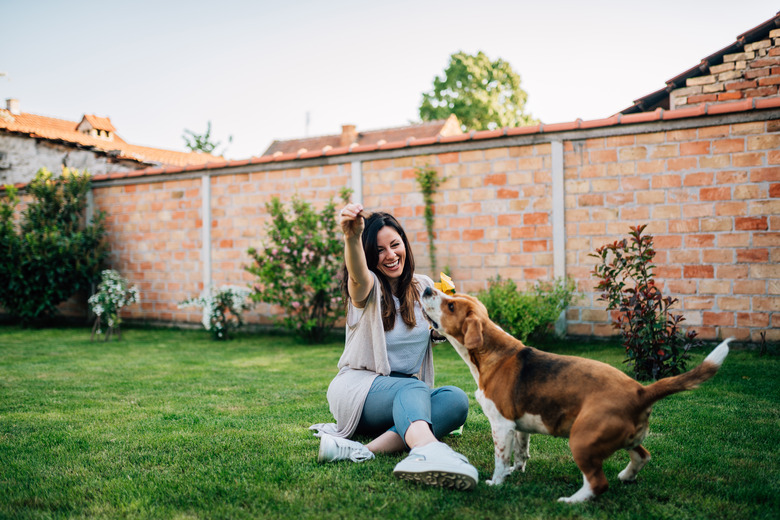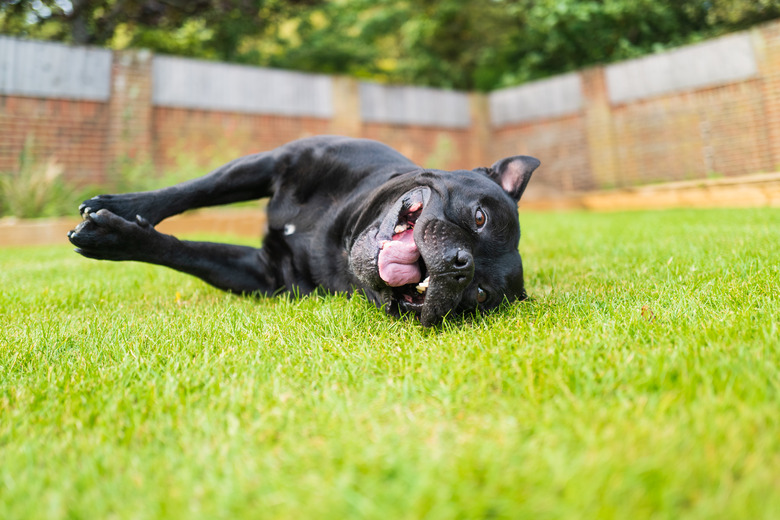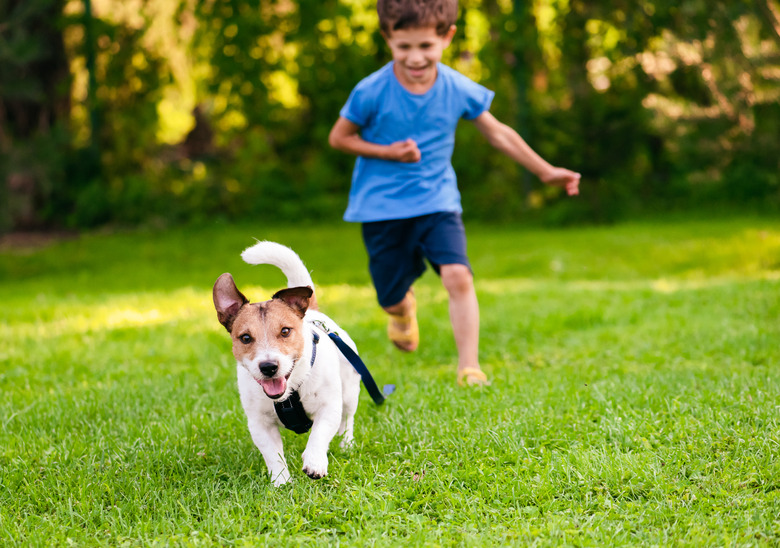How To Disinfect My Dog's Yard
You need to disinfect your dog's yard regularly to eradicate any bacteria and contagious diseases lingering in the soil that may affect your dog's health. If your dog has recently been ill with a contagious disease, like parvovirus, or was infected with an internal parasite, like roundworms, hookworms, or tapeworms, you must fully disinfect the yard before allowing your dog to use it again. Otherwise, you risk reinfecting your canine companion.
Dispose of any dog poop
Dispose of any dog poop
Dog feces can carry all kinds of diseases, like parvovirus, salmonellosis, cyptosporidiosis, and giardiasis, as well as pesky parasites, like roundworms, hookworms, whipworms, and tapeworms. Infected dog poop can spread these parasites through eggs that are deposited into your soil and can be further spread as people and animals walk, play, and run. It's important to regularly remove poop from your yard.
Before you begin using a grass disinfectant, clean up any dog droppings in the backyard using a shovel or pooper scooper. Disinfect the shovel or scooper afterward. Never add dog poop to a compost pile and instead throw the poop away in a tied plastic bag. If you want to reduce your plastic consumption, it's also perfectly safe to flush dog poop down the toilet.
Grass disinfectant for dogs
Grass disinfectant for dogs
Water alone won't kill bacteria and viruses. You'll need to spray your entire yard, including grass, flower beds, rocks, gardens, and garden edging, with a dog-safe commercial disinfectant to kill any existing viruses. Commercial disinfectants can kill E. coli, canine distemper, parvovirus, and giardiasis. An additional perk is that these disinfectants will remove lingering odors as well, providing you with a literal breath of fresh air.
Use a pet-safe multipurpose disinfectant like Top Performance 256 Disinfectant and Deodorizer or Johnson's Clean and Safe Disinfectant Trigger Spray to destroy viruses and bacteria. Just follow the product's instructions, which might include adding water or rinsing with water afterward. If you want to choose something that you already have on hand, try spraying hydrogen peroxide on the grass. You can also dilute bleach with water. Let any grass disinfectant for dogs air dry before allowing dogs to pounce and play in your yard again.
Increase the amount of direct sunlight
Increase the amount of direct sunlight
Unfortunately, moist, shady places are the ideal environment for many contagious dog diseases to thrive. By doing what you can to increase the natural, direct sunlight in your backyard, you can shorten the life span of any disease living in the environment. You can even reduce the canine parvovirus life span by a year.
Remove any shade-giving furniture and amenities, like chairs and tables, outdoor umbrellas, arbors, trellises, canopies, birdbaths, and pergolas. If cars, motorcycles, RVs, and boats that are parked in the driveway are shading the yard, temporarily relocate them. Trim overgrown tree branches, bushes, plants, and flower beds.
Dog sanitizing services
Dog sanitizing services
Depending on where you live, you may be able to have a professional sanitizing service come to your home. These dog sanitizing services will clean up any feces in your yard and sanitize the soil so it's safe and clean. These services can be found through a quick web search for pet waste removal in your area. The cost of these services vary, but bacteria in the yard making dogs sick is surely a higher price to pay.
Prevent the need to disinfect the yard
Prevent the need to disinfect the yard
The best way to keep your yard clean and prevent the need to disinfect it is by keeping your canine companion healthy and happy. Puppies and dogs need to be kept up to date on vaccinations. Puppies should get vaccinated for parvo by 12 weeks of age. Additionally, don't allow your dog to eat poop or drink standing water, as this can make him sick. Avoid spreading diseases by not allowing other animals into your yard.


